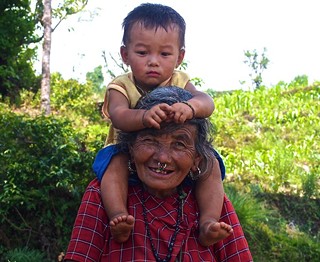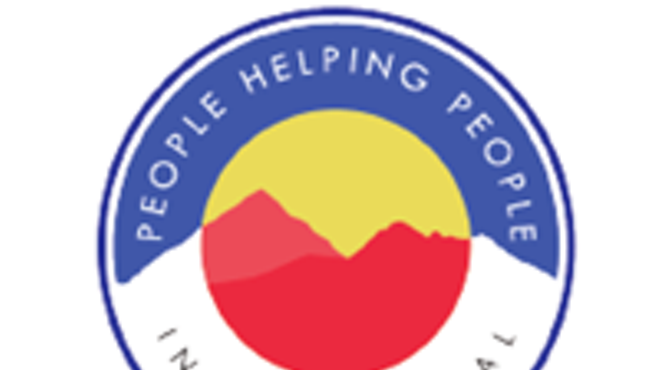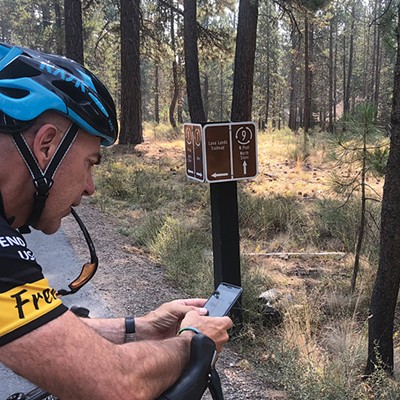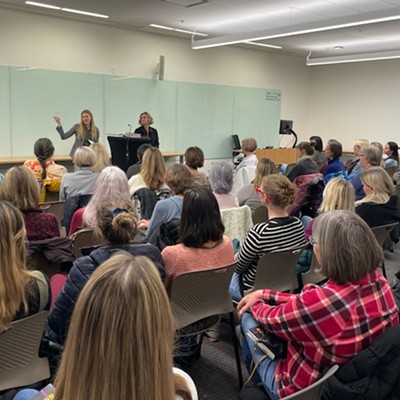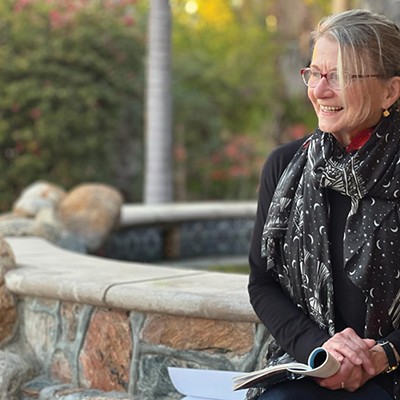Many foreign travelers fled Nepal after this spring's devastating earthquakes, but Bend residents Magdalena Bokowa and her husband Chadd Tullis stayed behind to deal with the aftermath. For more than two months they braved dangerous conditions to help rebuild communities, yet they still didn't think they'd done enough. Now back in Bend, they're holding a fundraiser to support another aid mission to Nepal.
The couple's odyssey began on their Himalayan honeymoon in April. While chatting with a man selling batteries at an open market kiosk near Annapurna Conservation Area, they heard what sounded like the clamor of a coming storm. Then the kiosk and all its wares and every structure around it started to rattle.
Bokowa, who had never experienced an earthquake before, said her first experience was too weird to believe.
"Weather changes, rain falls, and wind blows, but all my life the Earth beneath me had been still," she recalls. "So when it started moving, my first thought was, 'Is this really possible?'"
A series of increasingly harsh aftershocks caused landslides and avalanches all around them, so Bokowa and Tullis hiked out of the mountains for three days to reach the valley city of Pokhara. They found shelter but also saw that many buildings had been leveled by the quakes.
"It was apocalyptic," says Bokowa. "Entire families were living in the streets because their houses had turned to rubble. Even some of the people whose houses still stood were afraid to go back for fear the next quake would bring them down."
In a city packed with makeshift camps, Bokowa says one of the most striking images was a pair of adjacent eight-story buildings that had partially collapsed and were leaning against each other.
She explains that while most of the foreigners evacuated to their home countries after the quakes, she and Tullis scrapped their original plan to visit India in order to remain in Nepal and provide assistance. The couple quickly found they weren't the only travelers ready to pitch in.
"In the few guesthouses that were still standing, a core group of about 20 other travelers from different countries banded together right away," Bokowa says. "When we got the notices from our embassies to evacuate Nepal, we didn't even mull them over. We were like, 'No way. We're not leaving unless you kick us out.'"
The group pooled their own personal finances, then searched the city of Pokhara for other travelers who hadn't yet evacuated the country and asked them for donations. With the funds they raised, they worked with locals to bring immediate relief to villages within reach that seemed to need the most help. They organized food drops and transported building and medical supplies to some areas without roads. Bokara says their first efforts aided more than 30,000 residents.
After exhausting their initial funds, some members of the group created online crowdfunding pages to raise money from people in their home countries. Bokowa says that's when they first started calling themselves People Helping People International. She says the support they generated from families, friends, and strangers amounted to more than $50,000 from the crowdfunding pages alone.
They continued their operations until the beginning of the monsoon season, when heavy rains washed out the high mountain roads and made reconstruction efforts impractical. Most of the group members decided to return to their respective home countries, but some of them vowed to stay in touch.
"We had no doubt we'd working together again in the future," Bokowa says. "Because of what we'd all been through together, we all knew we were the real deal."
After returning home, the travelers remained in close contact. Together they developed the framework of a nonprofit organization and kept the original name, People Helping People International. They filed their paperwork in July and gained tax-exempt status, meaning donations to PHPI are tax-deductible.
Bokowa says PHPI's mission is to create aid programs that not only help communities after disasters, but also prepare them for rebuilding efforts before disasters strike. While its initial focus is on Nepal, the organization may extend its reach to other countries if its development allows.
To help raise funds for their return mission to the village of Pokhari scheduled for November, Bokowa, Tullis, and Josh Edwards are hosting "A Night for Nepal," featuring food, drink, live music, a raffle, and a screening of a short PHPI documentary.
A Night for Nepal
7 pm, Saturday, Oct. 17
Armature, 50 SE Scott St. Suite 1

